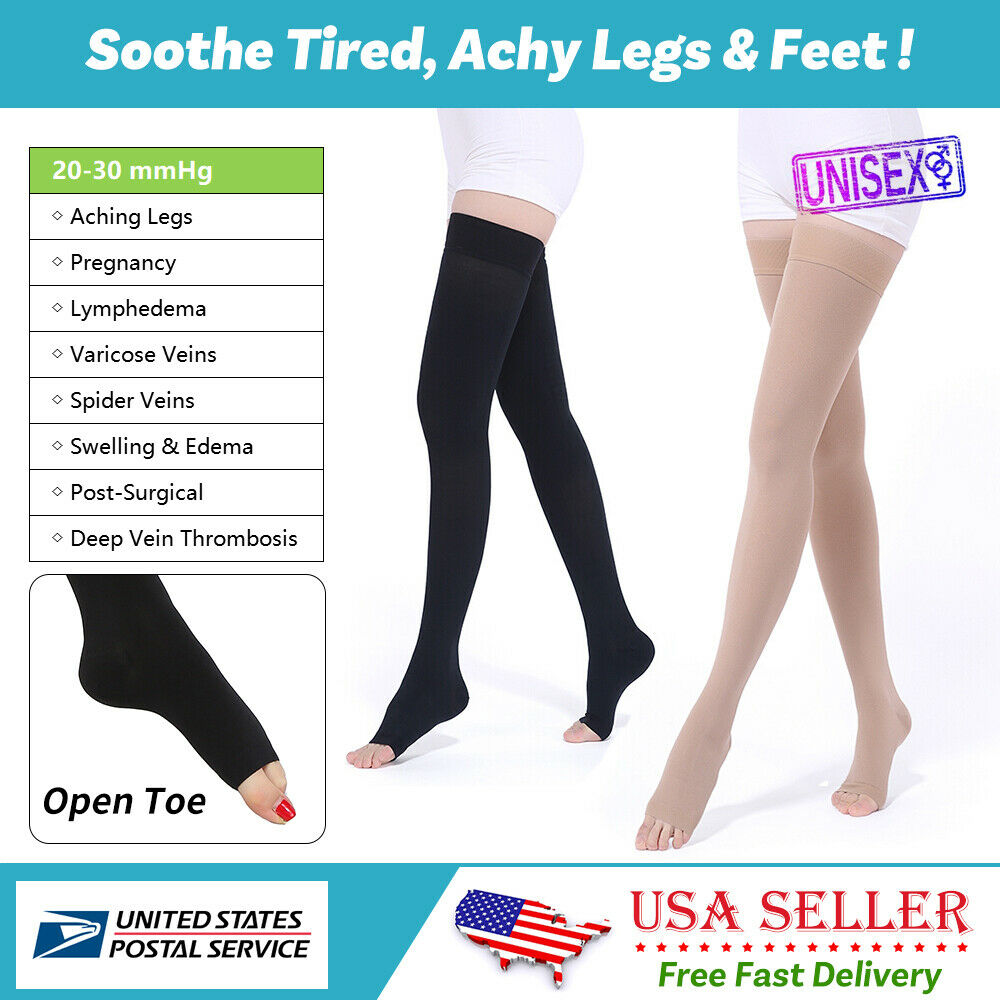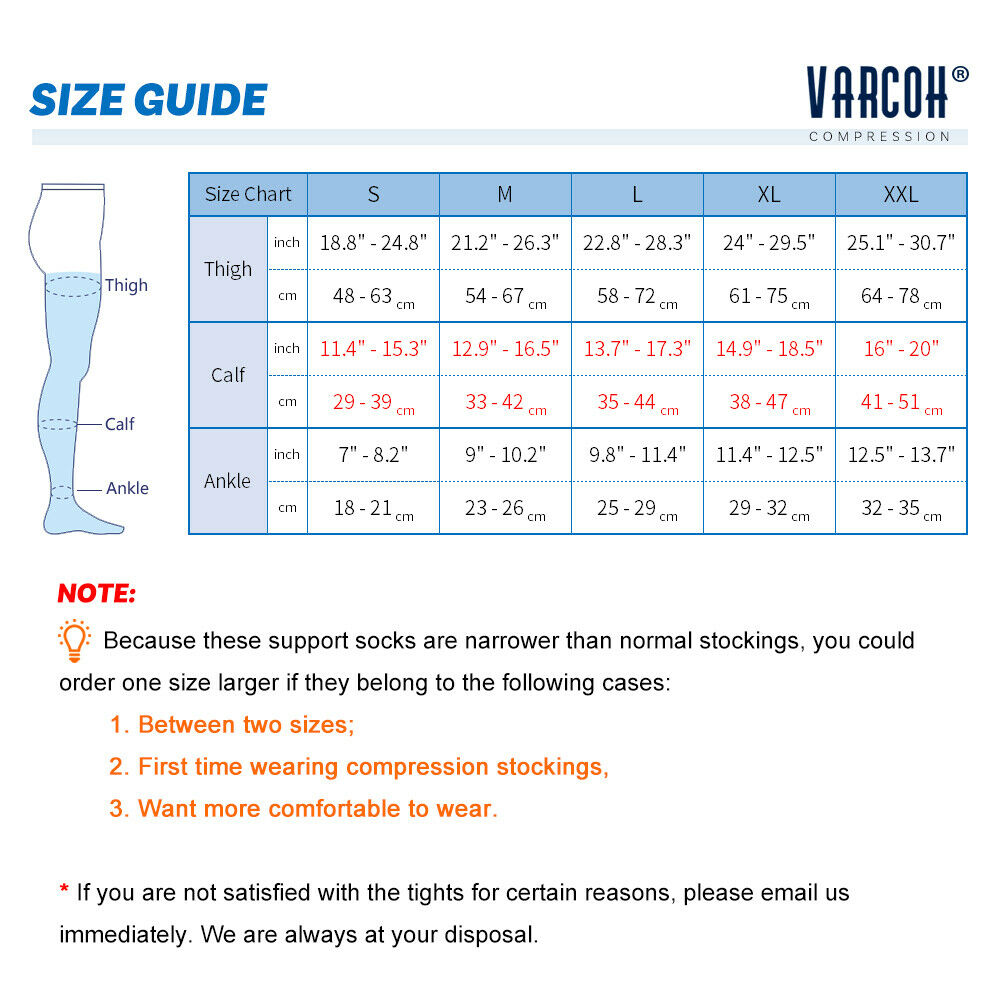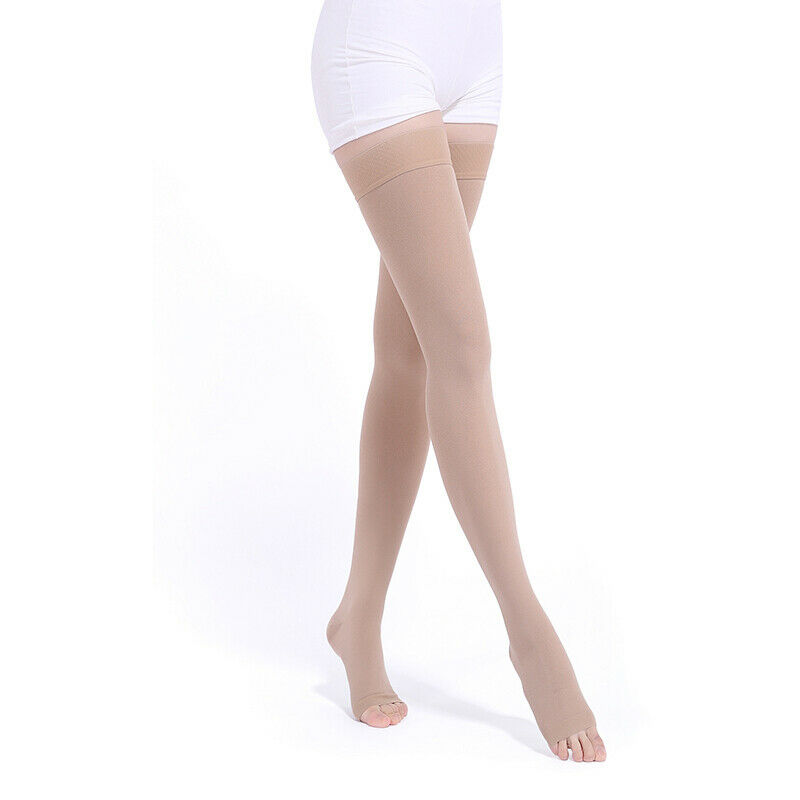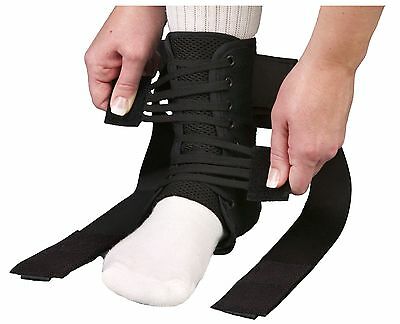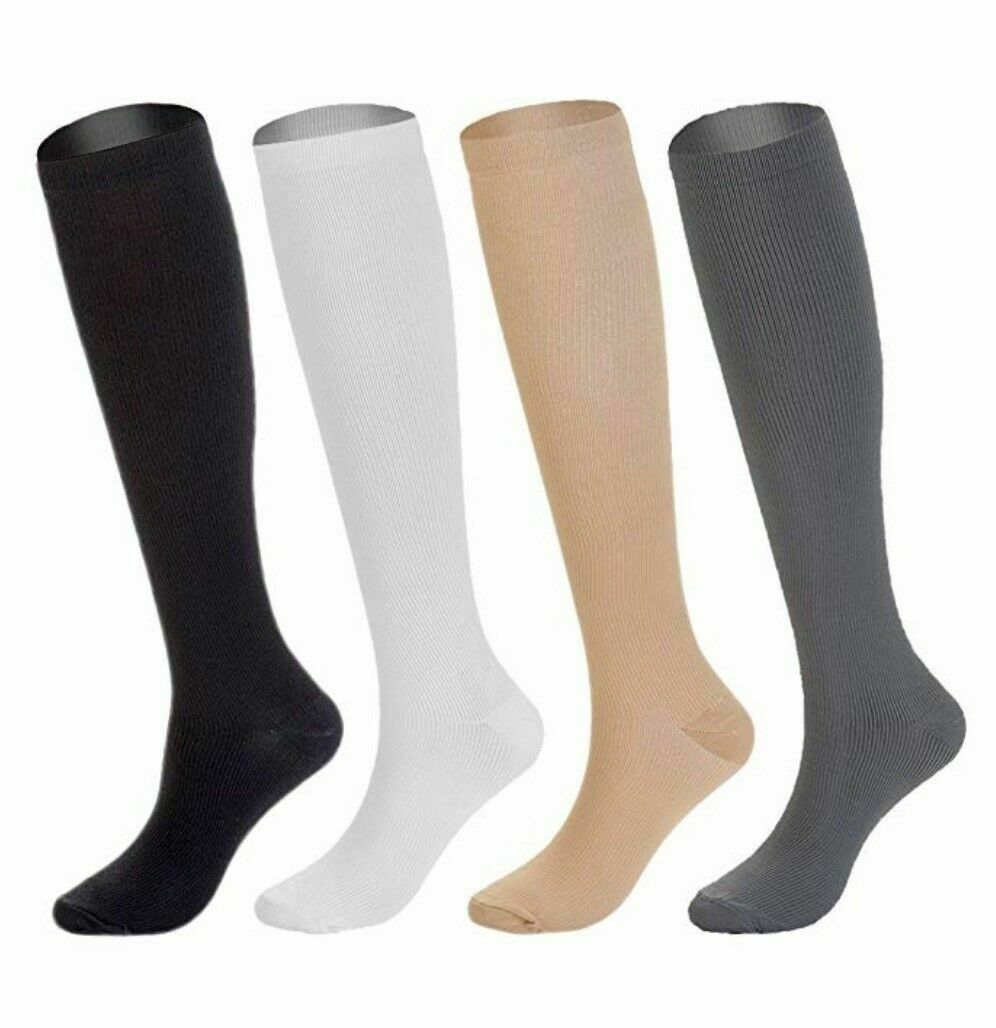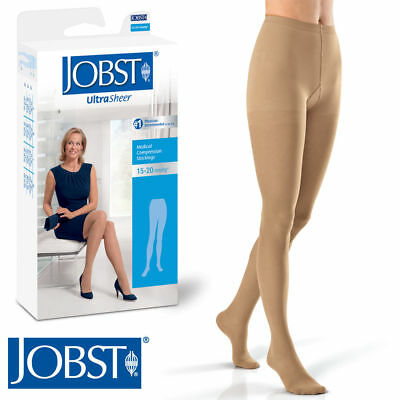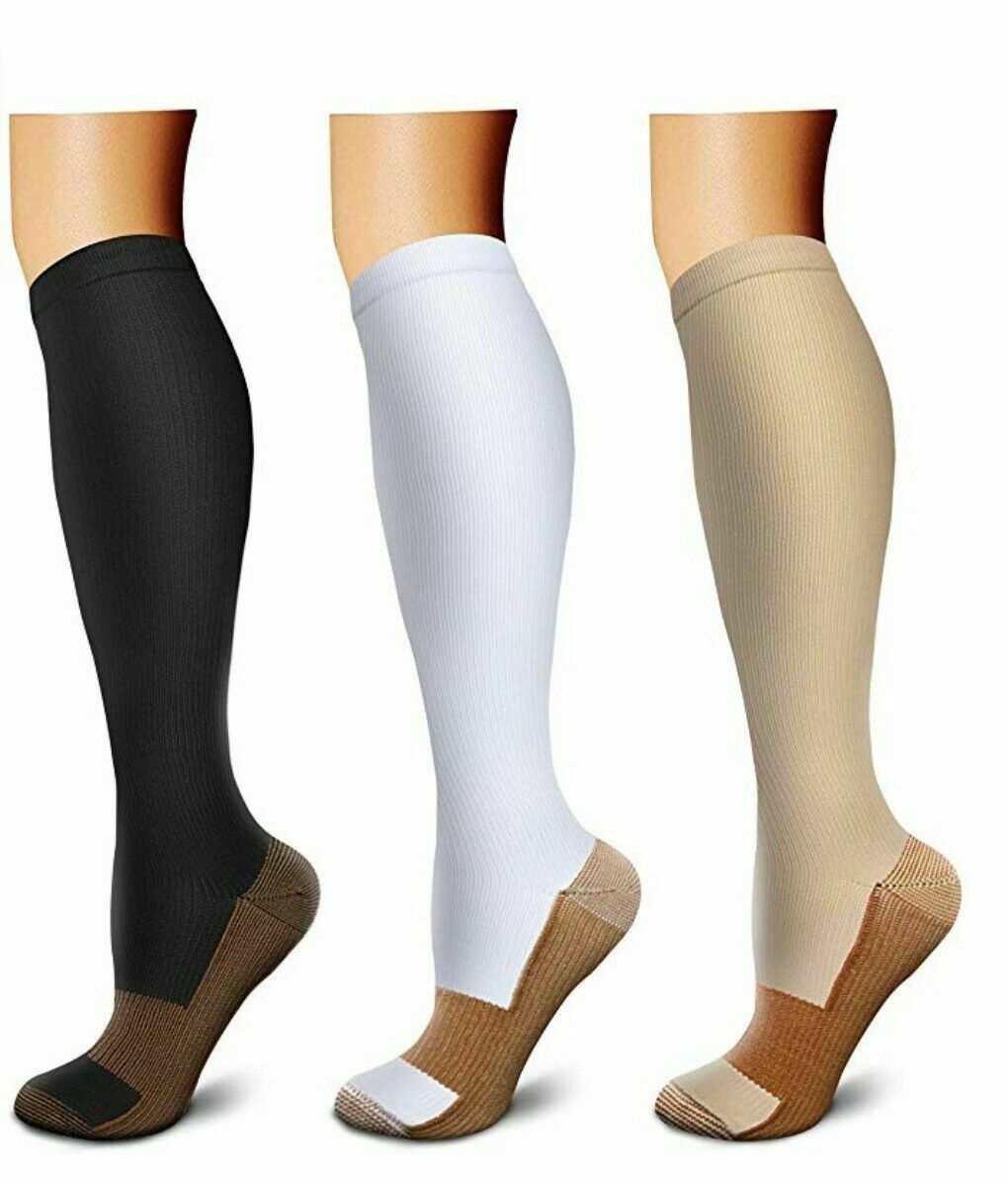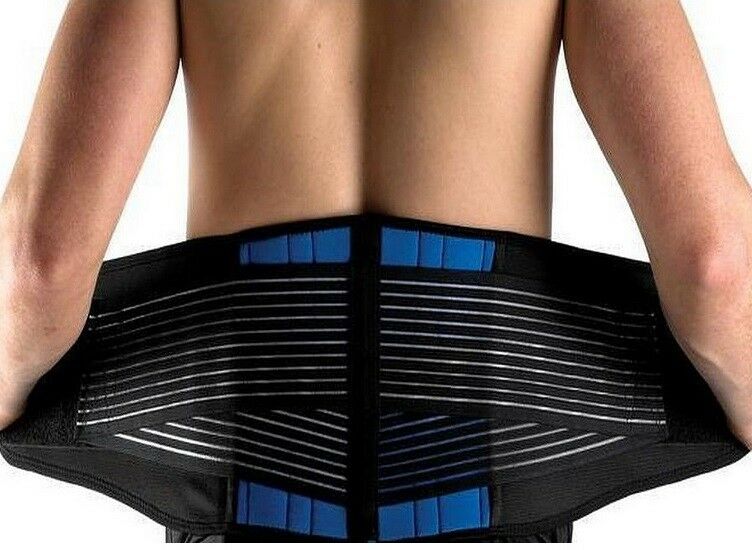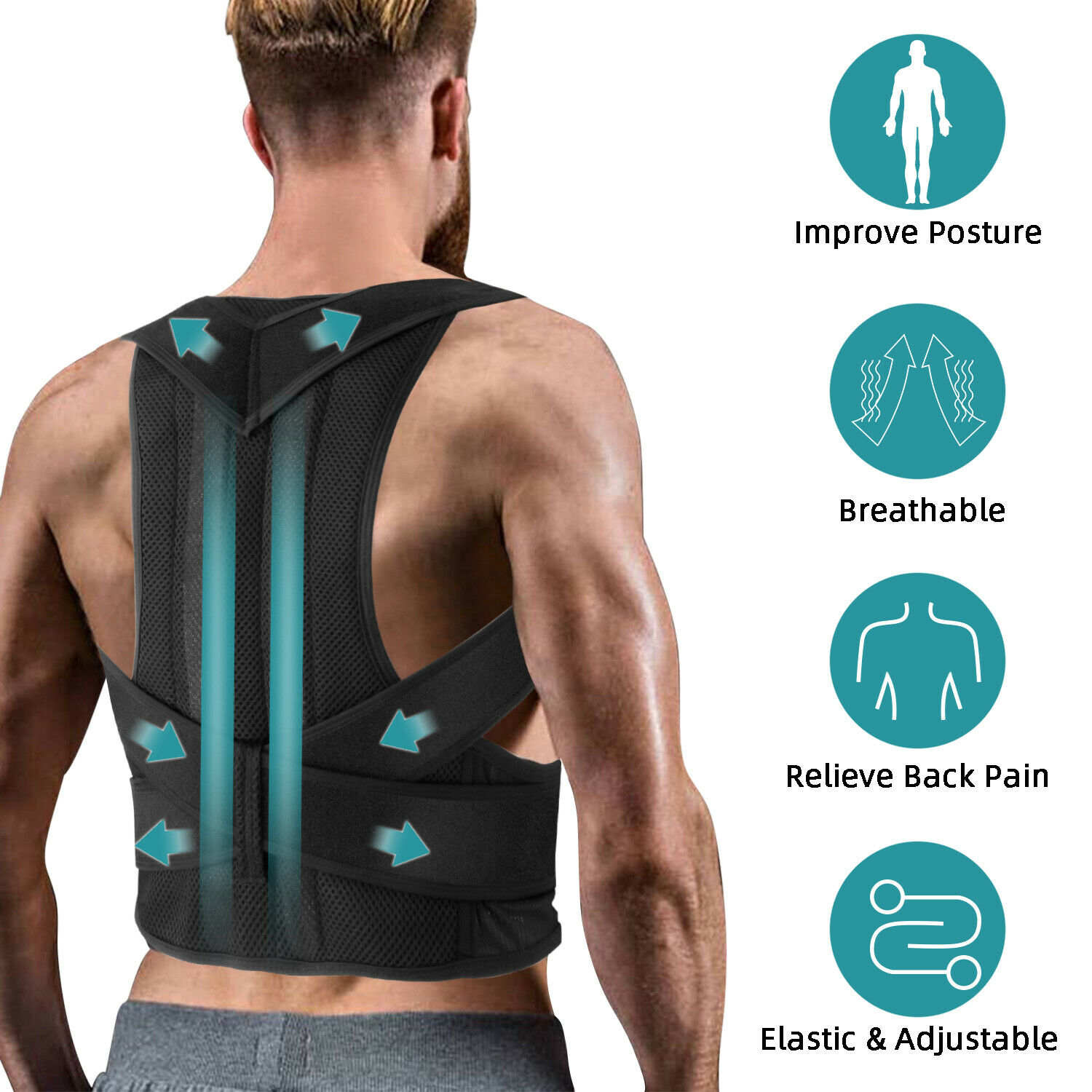-40%
Men Women Compression Stockings Best Diabetic,Varicose Veins, Shin Splints Socks
$ 12.88
- Description
- Size Guide
Description
Store CategoriesStore Categories
Ships to: Worldwide
Ships to: Australia
Ships to: United States
Ships to: United Kingdom
All Products
Tools
Other
20-30 mmHg Men Women Compression Stockings Nurse Varicose Veins Travel Flight
Product Description
Opaque material for men and women hugs legs to evenly reduce fatigue, pain and swelling. This strong compression sock will provide a firm fit and graduated 20-30 mmHg compression They will feel tighter than your average support sock and may be a bit harder to put them on.
FEATURES
• Comfortable, non constricting top band keeps garment in place
• Maximum all-day wearing comfort
• Discreet appearance to hide blemishes
• Easy to don, unisex
SPECIFICS
▸ Brand: Varcoh ®
▸ Series: Medical Grade
▸ Gender: Unisex | Women | Men
▸ Compression Level: Firm 20-30 mmHg
▸ Fabric: Opaque
▸ Color: Beige , Black
▸ Size: Varies
▸ Age group: Adult
▸ Fabric Content:70% Nylon, 30% Spandex
▸ Package includes: 1 pair
All of our compression socks are designed and engineered with your comfort in mind. Absolute Support delivers physician-prescribed elastic compression therapy guaranteed. We take 4-6 compression measurements at precise intervals between the ankle and end of garment. Multiple measurements guarantee our garments are comfortable and deliver an accurate distribution of the pressure gradient.
Satisfaction Guaranteed!
20-30 mmHg - FIRM COMPRESSION
• Helps prevent and relieve moderate to severe varicose veins (also during pregnancy)
• For post-surgical and post-sclerotherapy treatment to help prevent the reappearance of varicose and spider veins
• Helps in treatment of moderate to severe edema or lymphatic edema
• Helps with the management of active ulcers and manifestations of post-thrombotic syndrome (PTS)
• Helps relieve superficial thrombophlebitis
• Helps prevent orthostatic hypotension (sudden fall in blood pressure when standing)
• Helps prevent deep vein thrombosis (DVT), also known as economy class syndrome
QUESTIONS THAT ARE ON YOUR MIND
Can you help me with sizing?
You can choose the right size by measuring the circumference of the leg and looking at the size chart. Or contact us.
What is compression? What is the difference in compression?
You wear compression stockings to improve blood flow in your legs. Compression stockings gently squeeze your legs to move blood up your legs. This helps prevent leg swelling and, to a lesser extent, blood clots.
What does mmHg mean?
mmhg stands for "millimeter of mercury", a way to measure pressure.
How can we wash the garments? And with which soap or detergent?
We recommend to hand wash in warm water and air dry.
What is the difference between open toe and close toe?
There is no therapeutic difference between open and closed toe socks. The choice is yours, whichever is more comfortable.
Do I get compression at the toe area?
No. Compression begins at the ankle and gradually lessens as it goes up the leg. This reduces pooling in the legs and helps the veins return blood to the heart.
Shipping
Return / Exchange
Size Chart
Washing
FAQ
Shipping
Free Shipping on ALL USA Standard Orders- ALWAYS!
We offer free shipping on ALL orders within the United States. No minimum order is required!
Select our Standard Shipping Option for US orders to receive free shipping. Allow 3-10 Business Days to receive your order within the continental U.S. For orders to Puerto Rico, other US Territories, and Military APO's, please allow 7-14 Business Days to receive your order.
PLEASE NOTE: We ship Monday - Friday.
1. We have three warehouses in USA:
a. Rowland Hghts, CA
b. Houston, TX
c. Hebron, KY
Your items will be selected for shipment from the nearest warehouse and available inventory.
2. Items are generally dispatched within 1 business days after payment is cleared. please contact us if you have not received it in 14 business days.
Return / Exchange
Return or Exchange
30 Days Easy Return / Exchange
We have high quality control standard to make sure all the products we ship in perfect conditions, however, a return or an exchange request is unavoidable. If for some reason you are not 100% satisfied with your purchase, we will gladly help you return your item.
We suggest to inspect your package upon arrival. In the rare case there is a damaged item, missing item or an incorrect item in package, please contact us immediately, so we can correct any problems.
Return/Exchange Guidelines:
To make return/exchange service as easy as possible, please follow the guidelines as below:
1. Please contact us before submitting an eBay return request or case.
2. All returned products must be in their original condition, unworn, unwashed.
3. Please return through your local post office and include your filled-out return/exchange authorization form in your return package.
4. Once we have received the returned package, we will a refund within 7 business days.
Still have questions or concerns? Please contact us via
ebay Message
. We're happy to answer questions or help you with returns.
During working hours, we usually reply within 1 hour.
If your problem needs to be tracked or verified. For example: Query the delivery process of the item or have not received the item or the item is delivered incorrectly, the color / size is incorrect, etc. We need some time to verify, this situation usually reply within 24 hours.
So please allow us some time to deal with it. Please do not worry, we will solve any problems for you, please believe me.
We like to communicate with you friendly and solve the problems for you during a pleasant chat. nothing means more to us than providing you with the customer service you truly deserve.
Size Chart
View All
Hide
Compression Size Chart
Compression therapy refers to the use of specialized garments for the management of chronic venous disease and lymphedema.
The compression pressure reduces swelling by moving excess fluid back into the capillaries which helps prevent the fluid from leaking. The garments also reduce the ability of superficial veins from expanding and overfilling with blood.
Sleeves, socks, and hosiery meet your specific needs. However, in order to relieve cramps and prevent swelling it ’s crucial that you choose the right size.
How To Measure Your Legs For Compression Socks:
1. Do your first thing in the morning before your legs start to swell. Otherwise, you may choose a size that is too large.
Note: If you or your doctor don't measure your legs until one day later, you can raise, bandage or pump your legs to reduce swelling.
2. Ankle Measurement
Measure the circumference of your ankle by placing the measuring tape at the narrowest part of the ankle and wrapping it around to make a circle. This should always be your first measurement.
3. Calf Measurement
Find the widest part of your calf and measure the circumference.
4. Thigh Measurement
Find the widest part of your thigh, right under your buttocks and measure the circumference.
5. Leg Length
Measure the distance from your buttocks to the floor.
Washing
View All
Hide
How to Wash Your Compression Stockings
Compression stockings are a great source of relief for swelling in the legs and help to increase circulation. Knowing the right way to keep them clean will help them last a long time.
ITS IMPERATIVE THAT THE GARMENT IS WASHED AFTER EACH USE!
Washing brings back the elasticity to the garment; this insures your getting the proper compression and prevents them from rolling. Washing after each use will also remove built up oils/sweat which leads to garments tearing & ripping.
Step 1
Fill a small tub or basin with cool water. Dip the stockings in the cool water, then remove. Add a mild detergent or soap to the water. Mix the water with your hand to circulate the soap. Place the stockings back in the water and let them sit for 5 to 10 minutes. Do not use hot water because the heat might damage the elastic in the compression stocking.
Step 2
After soaking, gently rub the stockings to remove dirt and oil. Squeeze them out and rinse to remove any soap. Be sure to squeeze them gently and do not pull the stockings. Pulling can result in an imperfect fit when trying to wear them again.
Step 3
Rinse stockings out until all soap is removed. When the water squeezes out clear, they are clean. Squeeze out as much water as you can, then lay the stockings flat to dry in a cool or warm place. Hang dry. Do not place near heat. Do not wring them out, as it may damage the way the compression stocking is woven.
Wash your garments after each wearing - The more you wash them the better - Washing brings back the elasticity to the garment, and remove built up oils and dirt
Do not wear a pair for more than 3 Months - This is the max - many replace after 2 months Just because they look good does not mean that they still have the proper compression
FAQ
View All
Hide
Frequently Asked Questions About Compression Stockings
We're always glad to any questions you may have. If you need a quick answer, you can click on the shop's contact seller. Here are answers to the questions we're asked most often.
Q.Should you buy knee highs, thigh highs, or pantyhose?
If you have aching feet or swelling in the lower legs or ankles below the knee, knee-high stockings will typically provide all the compression you need. This length stocking is also the easiest style to fit.
If you need compressive support throughout the entire length of the leg, thigh-high stockings, pantyhose, or a leotard are appropriate. For compression to be effective, it must cover the area of the limb where the problem exists.
Q.What compression level should you wear?
If you have been told to wear a compression garment by your doctor or therapist, he or she should have told you what compression level you need, to treat your specific condition.
Q. Are compression stockings sold in pairs?
Yes, all compression stockings are sold in pairs.
Q. How do you find the right size?
Great question … some stockings are sized by shoe size or height and weight, but most are sized by leg measurements. If you swell, best to measure first thing in the morning. Measure the circumference of your ankle at the narrowest point, your calf at the widest point, and the distance from the floor to the bend of your knee for knee highs. For thigh highs and pantyhose, you'll also need to measure around your upper thigh and the length of your leg from the floor to crease of buttocks.
Q. How do I stop my stockings from rolling down?
Knee high stockings typically roll for two reasons: they are too long, or stretched too tight at the top.
If the top of your stocking is pulled up into the crease of your knee, the movement of your leg will cause it to roll. When putting on your stockings, pull the top-band up so it’s 1-2 finger widths below the crease of your knee. (The stocking doesn’t have to be stretched out to be effective.) If there are wrinkles, smooth them out with the palms of your hands. If you can’t smooth out all the wrinkles, you need a short (petite) length stocking.
If your stocking is too small for your leg, it will often roll. Measure around the widest part of your calf and check the size chart on the package.
If neither of these reasons are the cause, try a knee high with a silicone top-band.
Q. How do I care for my compression garment?
As with any item made of fabric, it will last longer if it's hand washed and air dried, but this can be difficult. If you machine wash your stockings, use a mild detergent and warm or cold water, never hot. If your stockings are sheer, use a lingerie bag to prevent snags. If you machine dry, use a low heat setting. Silicone top-bands will loose their softness more quickly if machine dried. And finally, wash them daily. This removes dirt and oils from your skin that can break-down the spandex, and it returns the stocking to its original shape and size.
Q. What are compression stockings?
Compression stockings apply pressure to the circumference of the leg which affects the leg's surface veins in a graduated, controlled manner. This temporarily reduces the size of the surface veins and forces blood into the deep vein system within the legs. Clinical studies have shown that applying graduated compression to the legs increases blood flow to the deep veins. The result is better blood circulation which usually brings relief from painful symptoms caused by poor blood flow.
Q. How can compression stockings help me?
Because the legs are farthest from the heart, and blood flowing back to the heart must work against gravity, blood circulation to the legs is often affected by medical conditions, increasing age, weight, or occupational stresses. Any of these can cause serious problems with blood circulation. Impaired blood circulation may cause symptoms ranging from fatigue, aching, and swelling in your hands, legs, and feet to more serious conditions such as deep vein thrombosis (DVT). These conditions can usually be reduced by wearing the appropriate type of "graduated compression" hosiery. Doctors call this approach compression therapy.
Q. What does "graduated compression" mean?
Graduated means that the level of compressive pressure applied to the circumference of the leg gradually decreases as you move from the lower to the upper part of the garment. The result is that more pressure is applied to the veins in the lower leg than in the upper leg which pushes fluids up. The amount of pressure in compression hosiery is indicated using the measurement term "mmHg" or millimeters of mercury which is how the compression is measured. Some examples are 15-20mmHg, 20-30mmHg, and 30-40mmHg.
Q. How do I know if I need to wear compression stockings?
Doctors recommend compression hosiery for treatment or to provide relief for many conditions affecting the veins. Your doctor or medical professional is your best source to find out if it might help you. Compression hosiery is a medical product and you should check with your doctor before wearing it to ask what level of compression best suits your medical condition. To get the best results from compression therapy, you need to wear the right level of compression and wear a garment that fits you properly.
Q. What medical conditions can be helped by compression therapy?
The symptoms of varicose veins, spider veins, venous insufficiency, phlebitis, chronic ankle and leg swelling, and deep vein thrombosis can all be helped with graduated compression therapy. Because the correct compression level is highly important to getting the best result, you should consult with your doctor or medical professional for advice regarding the appropriate compression level for your condition. Verify this with your doctor from time to time, particularly if your health changes.
Q. Who should NOT wear compression stockings?
Absolute contraindications, or medical conditions in which compression is never recommended, include ischemia (e.g. advanced arterial disease), uncontrolled congestive heart failure, untreated septic phlebitis, and phlegmasia coerulea dolens.
Relative contraindications, or medical reasons in which compression is sometimes not recommended, include concomitant dermatoses, intolerance to compression stocking fabric, sensory disturbance of the limb, advanced peripheral neuropathy, and primary chronic arthritis.
Q. Can young people and athletes benefit from compression therapy?
Yes. Most adults can benefit from compression hosiery regardless of age. Usually, healthier and younger people wear lighter levels of compression.
Anyone who spends a great deal of time sitting behind a desk or standing up for extended periods may experience constriction of blood vessels and blood pooling in their legs and feet. They will find that graduated compression hosiery can help reduce the swelling, fatigue, and leg aches as their circulation gets a boost from the hosiery. The heavier levels of compression should only be worn under a doctor's supervision.
Athletes, particularly runners, find that knee-high compression hosiery improves performance and reduces recovery time as less fatigue is felt after a work-out. Frequent travelers can wear travel socks to help prevent deep vein thrombosis (DVT). Many pregnant women develop venous problems, such as varicose veins and spider veins, and maternity pantyhose can help prevent or minimize these problems.
Q. What is "economy class syndrome"?
Deep vein thrombosis (DVT), also known popularly as economy class syndrome, is a very serious condition in which dangerous blood clots can form in the legs during flights due to cabin pressure and cramped seating positions. Studies show that graduated compression hosiery, sometimes called travel or airplane socks can help prevent or minimize the formation of these blood clots.
No matter how healthy you are, when you are passively seated in a plane, a car, or even at a desk, for long periods of inactivity during which the leg muscles are not moved can lead to blood pooling in the legs. This causes swelling and discomfort and may even lead to the formation of blood clots in veins deep inside the legs. When activity resumes, a blood clot can move to the lungs and cause a pulmonary embolism. Anyone who spends long periods of time in passive sitting can be at risk. You can reduce the risk by wearing compression stockings. Compression therapy will help your legs feel energized and reduce swelling in the legs and feet. It's one of the simplest things you can do to prevent DVT.
Q. Compression stockings, support socks, support hose...what's the difference?
They all mean the same thing. There's no difference between a compression stocking and a support stocking, except for the wording.
Q. How long should compression stockings last?
If properly care for, compression stockings should last between four and six months. Stockings made from sheer fabrics can develop snags and runs like regular sheer stockings, and can have a shorter life span. Keep the following factors in mind when estimating how long your hosiery should last:
1. The most common reason for compression garments wearing out too quickly is when they are washed and dried carelessly – just thrown in with the regular wash – or not cleaned when needed. Be sure to use the correct kind of cleaning solution. Don't use high temperatures when washing or drying, and don't machine-dry unless the stocking instructions specifically allow for it.
2. Clean frequently enough to remove the natural perspiration, skin oils, skin acids, and skin flakes that the skin is always producing and shedding. Letting these substances remain in contact with the stocking fibers will weaken them and decrease the lifespan of the garment.
3. When donning and removing the hosiery, don't snag the stockings on jewelry, finger or toe nails, or rough surfaces. Long toe nails can tear or cause increased wear in the toe area.
4. If worn with shoes that have worn or rough linings, or shoes that are too tight which rub against the stocking fabric, the lifespan of the garment will be decreased.
5. Compression will gradually decrease over time so mark your calendar with a reminder of when you need to replace your stockings.
Q. What is the difference between an open-toe and closed-toe stocking?
An open-toe stocking is one that is woven so that the toe area and the area about one or two inches behind the toe are not covered by the stocking – i.e., the toes and part of the foot remain bare. There is no therapeutic difference between the two styles. Occasionally your doctor may prescribe one style over the other, but usually it is just personal preference.
Copyright © 2018 Dianxiaomi
